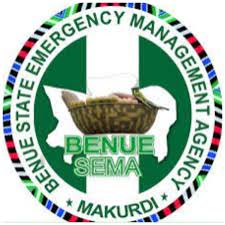Economy
Subsidy: NEC Strategizes Palliatives for Workers, Vulnerable Groups

By Mathew Dadiya, Abuja
The National Economic Council (NEC) has moved to provide palliatives for workers and vulnerable groups in the country following the removal of petroleum subsidy, which has heightened the cost living.
Arising from its maiden meeting under the present dispensation, which was presided over by the Chairman, Vice President Kashim Shettima at the Presidential Villa, Abuja on Thursday, it announced the setting up of a committee to work out, within two weeks, the modalities for organizing and distributing the palliatives.
Disclosing these to State House correspondents after the meeting on Thursday in Abuja,, Governor of Bauchi State, Bala Mohammed, joined by four other colleagues – Katisna State governor Umar Radda, Yahaya Bello of Kogi state, Dapo Abiodun of Ogun State, and Abia State governor, Alex Otti said the council also discussed the possibility of obtaining funds from the World Bank and London partners to implement the programme of Compressed Natural Gas (CNG) for vehicles in the country as part of measures to bring down the price of fuel.
Mohammed said that the Council deliberated on other recommendations including the one by the organized labour for N702 billion consequential adjustment on allowances as well as the about N23 to N25 billion monthly they requested to cushion the effects of the subsidy removal.
While noting that NEC took very far reaching decisions and deliberations on the issue of the removal of petroleum PMS subsidy and its general impact on the economy, the governor explained: “Specifically on the issue of national salaries, income and wages commission, NEC had received recommendations on the various ways and means that the country can use whatever increases that we have in the revenue to mitigate the impact that is going to make on the lives of our workers and all those people involved.
“And so, they recommended and they gave us a scenario recommending that there should be a consequential adjustment, estimated at N702,919.8 billion as part of the allowances that should be given as petroleum allowance to all workers and as well as a 23 or 25 billion monthly offer to cushion the effect on workers and others suggestion that will go a long way in making sure that there is review of our salaries and wages.”
He disclosed that the Council looked at all the issues including “the challenges and problems holistically and set up a small committee of council to review and come up with a term of reference to organized areas specifically where this palliatives can come and how it will be dispensed to alleviate the problem of workers and other vulnerable groups.
“Members of the committee is composed of Governor Kebbi as Chairman; Anambra representing the South East geopolitical zone; Governor Benue, North Central, Governor of Kaduna, Northwest; my humble self, Bauchi, representing the northeast; Governor Cross River, South South and Oyo state,southwest.
“Other relevant agencies were also included. They comprised of a budget office, representative of the CBN, representative of the Office of the Attorney General of the Federation, representative of NNPC, representative of TUC and NLC and of course, Rukayat El-Rufai, so that we can sit within two weeks to come up with recommendation to NEC for a wholistic decision that will be taken immediately to alleviate the problem that may be encountered by the removal of the subsidy.”
The Governor of Bauchi State, said the input of the committee on palliatives earlier set up and headed by former Vice President Yemi Osinbajo, would not be discarded but integrated into the ongoing process.
Governor Alex Otti explained that as part of the inaugural National Economic Council meeting, major focus was on the removal petroleum subsidy and implied removal of subsidy on foreign exchange, which has led to some convergence of some sort.
He also said that the impact of these two actions definitely is increased prices, and that’s a way to solve the problem and reduced the shock, a presentation was made by the National Automotive Design and Development Council on the great things that are happening in the automotive industry.
“It was that about six states in the country, including Lagos, Ogun, Anambra, Enugu, Akwa Ibom, Kaduna and Kano and have benefited from domestic production of vehicles or assembling of vehicles by Nigerian companies operating in Nigeria. And these companies include INNOSON, Maikano, Dangote Peugeot, Peugeot automobile of Nigeria, Stallion Hundai, Honda, Elizade/Toyota, Coscharis and Ford, Kojo Motors, Jet Systems motors.
“At the moment, about 50,000 jobs have been created by this simple action of either assembling vehicles in Nigeria or producing them Nigeria. A great feat is that some of these companies have gone into the manufacturing or assembly of electric vehicles and vehicles powered by CNG – compressed natural gas. The impact of this is that the pressure on the price of petroleum products particularly PMS will be reduced. The more we use electric vehicles and CNG powered vehicles,” he said
According to the Abia State governor, some of the decisions that were taken include that legislative support will need to be given to these companies that are doing great things in Nigeria.
“It is important to underscore the point that former President had made a commitment that by 2060 that Nigeria would join countries that will eliminate fossil fuel powered vehicles and move to electric vehicles in pursuit of the net zero emission that some of the countries in Europe, America and Asia have signed on to. So if that must happen, then we need to ramp up the production of electric vehicles and CNG vehicles.
“It is estimated that if we give legislative support to this company, that about a million jobs from the 50,000 jobs that exist in that industry would be created,” he added.
Koki State governor, Yahaya Bello, said issue of flooding or flood disaster across the country was also discussed adding that at 128th NEC meeting held on 28th October 2022, the then chairman of Nigeria Governors Forum and the former governor of Sokoto state, Aminu Tambuwal, drew the attention of the council to the devastating effects of the 2022 flood which affected almost all the states of the Federation, resulting into loss of lives and livelihoods.
Bello said that the council resolved, as at that time to set up a five man ad hoc committee on flooding, comprising of governance of Jigawa, Kogi, Anambra, Bayelsa, Lagos and Yobe States and co-opted some other ministries and agencies. The terms of reference was to review the current flooding situation in the country and design a template for compensation of victims.
The Council, he said, noted that there were limitations in carrying out the assignment pointing out the delay in the non submission of field templates by some states, as only 16 states out of the total number of states affected forwarded their submissions to NEC Secretariat.
He said up to date, about 15 others were yet to do so, saying, “the submission from defaulting states are awaited as we speak.”
NEC recommended that the plight of victims of the unfortunate flawed disaster across affected states of the Federation could be alleviated if the much needed intervention from the federal government materialized without further delay.
The Council called for the need to expedite release of funds to affected states as recommended by designated committees constituted by the federal government to that effect.
“So resolution of NEC, council resolved at all states should make a comprehensive submission by next week. Members are also to liaise with the Office of the Vice President, Office of the Secretary to the government of the federation and also all the private sector and other well spirited Nigerians to help I. tackling this flooding in the country,” the governor said.
Ogun State governor, Dapo Abiodun who spoke on petroleum, said, the contribution by some of the key oil and gas sector heads like the NNPC Group Chief Executive Officer, Mele Kyari and Nigeria Mainstream and Downstream Petroleum Regulatory Authority (NMDPRA), Ahmed Farouk gave inputs.
“We had from the marketers and of course, it was a robust dialogue, cross fertilization of ideas by all the executive governors across the length and breadth of Nigeria today,” Abiodun said.
Economy
Investors Gain N183bn on NGX

The Nigerian Exchange Ltd. (NGX) continued its bullish trend on Wednesday, gaining N183 billion.
Accordingly, the market capitalisation, which opened at N59.532 trillion, gained N184 billion or 0.31 per cent to close at N59.715 trillion.
The All-Share Index also added 0.31 per cent or 303 points, to settle at 98,509.
68, against 98,206. 97 recorded on Tuesday.Consequently, the Year-To-Date (YTD) return increased to 31.
74 per cent.Gains in Aradel Holdings, Zenith Bank, United Bank For Africa(UBA), Oando Plc, Nigerian Breweries among other advanced equities drove the market performance up.
Market breadth closed positive with 34 gainers and 17 losers.
On the gainers’ chart, Africa Prudential, Conoil and RT Briscoe led by 10 per cent each to close at N14.30, N352 and N2.42 per share, respectively.
Golden Guinea Breweries followed by 9.95 per cent to close at N7.18, while NEM Insurance rose by 9.74 per cent to close at N10.70 per share.
On the other hand, Julius Berger led the losers’ chart by 10 per cent to close at N155.25, Secure Electronic Technology Plc trailed by 9.52 per cent to close at 57k per share.
Multiverse lost 7.63 per cent to close at N5.45, Haldane McCall dropped 6.07 per cent to close at N4.95 and Honeywell Flour shed 5.62 per cent to close at N4.70 per share.
Analysis of the market activities showed trade turnover settled lower relative to the previous session, with the value of transactions down by 49.44 per cent.
A total of 320.10 million shares valued at N6.48 billion were exchanged in 7,943 deals, compared with 939.41 million shares valued at N12.81billion traded in 9,098 deals posted in the previous session.
Meanwhile, ETranzact led the activity chart in volume with 70.27 million shares, while Aradel led in value of deals worth N1.22 billion.(NAN)
Economy
Yuan Weakens to 7.1870 Against Dollar

The central parity rate of the Chinese currency renminbi, or the Yuan, weakened 22 pips to 7.1870 against the dollar on Monday.This is according to the China Foreign Exchange Trade System.In China’s spot foreign exchange market, the Yuan is allowed to rise or fall by two per cent from the central parity rate each trading day.
The central parity rate of the Yuan against the dollar is based on a weighted average of prices offered by market makers before the opening of the interbank market each business day. (Xinhua/NAN)Economy
Bring Kaduna Refinery Back into Operation, Youth Group Urges NNPCL

Arewa Youths Initiative for Energy Reforms (AYIFER), has urged Nigeria National Petroleum Corporation Limited (NNPCL) to do everything possible to bring Kaduna Refinery back into operation.
National Coordinator of the group, Mr Bashir Al’Amin, stated this in a statement issued on Friday in Abuja.
Al’Amin specifically called on the Chief Executive Officer of NNPCL, Mallam Mele Kyari, to do all within his powers to rejuvenate the refinery and bring it up to global standard.
He said that having delivered the Port Harcourt refinery, coupled with the establishment of Dangote Refinery in Lagos, attention should be shifted to Kaduna refinery for easy spread of petroleum products.
“We are calling on Malam Mele Kyari to expedite action on Kaduna refinery so we can be at par with other regions in the country.
“We equally beg the NNPCL to do professional work in rehabilitating the old refinery and deliver a standard and functional petrochemical refinery and not a blending plant.
“Kyari should resist any temptation that could make him do something that can jeopardise his good image,” he said.
Al’Amin said that since the extinction of groundnut pyramid and textiles in Kano State as well as PAN in Kaduna State and with the Kaduna refinery getting moribund, a lot of youths had lost their jobs.
According to him, all their hopes in the north are tied to the legacy refinery, expressing the hope that God would use Kyari to deliver it well and on time.
He said that the group was solidly behind NNPCL in prayer and would be ready to celebrate the company if its expectations were met. (NAN)





























